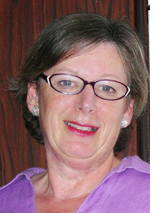|
By Judy Lash Balint
 JERUSALEM—One of the great things about living in Israel is how easy it is to really "feel" any upcoming holiday. Just take a walk through the shuk and the stacks of honey jars, piles of just ripe pomegranates and barrels of shiny Golan apples all make it easy to anticipate Rosh Hashanah. Radio & TV ads are full of New Year wishes and mailboxes full of heart-wrenching holiday appeals. But paradoxically, all that that can be a downside too, because it's just too damn easy to take it all for granted. JERUSALEM—One of the great things about living in Israel is how easy it is to really "feel" any upcoming holiday. Just take a walk through the shuk and the stacks of honey jars, piles of just ripe pomegranates and barrels of shiny Golan apples all make it easy to anticipate Rosh Hashanah. Radio & TV ads are full of New Year wishes and mailboxes full of heart-wrenching holiday appeals. But paradoxically, all that that can be a downside too, because it's just too damn easy to take it all for granted.
In the old country, where you had to finagle time off from classes or work and explain the intricacies of why you were living in a booth for eight days in the chilly autumn rain, getting ready for the high holidays was a more deliberate and serious endeavor. Here in Israel, it's too easy to take things for granted and can sometimes become just a matter of anticipating a week off work and deciding which tiyulim to take during chol hamoed.
That's why events like the Festival HaPiyut that opened September 7 at Beit AviChai in Jerusalem are just the right antidote.
It's hard to explain exactly what piyutim are. Essentially they're the poetry that adorns various prayers throughout the year. The pre-High Holyday piyutim are the verses Jews recite at this time of year to butter up God. They've evolved over the centuries and are generally sung as a community, not by the individual, and for some reason Sephardim definitely have a more developed sense of using piyutim than Ashkenazim.
I've written before about how piyutim are experiencing a revival here in Israel, with young paytanim (singers of
Go to the top of next column |
|
piyutim) commanding large audiences; a website devoted to the genre as well as a wealth of scholarly research and concert halls filled with devotees.
In the delightful walled courtyard of Beit Avichai on King George Street, several hundred mostly religious people gathered for the opening of the Festival.The event was billed as encompassing three generations of paytanim from Nachlaot, the old Jerusalem neighborhood not more than 7 minutes walk away.
Indeed, the all-male performers ranged in age from 10 to 80, each one chanting one of the soulful but lively piyutim to the accompaniment of an outstanding group of musicians. To get an idea of what they sound like click here.
Many of the piyutim performed last night were from the 19th and early 20th century--mostly originating in Tunis or Egypt. The music is amazingly complex with changing rhythms and odd beats with darbuka drums, the oud and violins all playing major roles.
The two hour concert drew to a close after two veteran paytanim were honored. One, Rabbi David Raichi, who immigrated from Tunis in 1956, was a long-time piyut practitioner at the renowned Ades synagogue in nearby Nachlaot.
As Rav Raichi drew out his final notes, I couldn't help thinking of Rev. Samuel Benaroya z"tl, the chazan of my old kahal in Seattle, who was a world-renowned expert in every kind of Sephardic makam, and whose personality and ability to pass on those traditions is legendary. His special knowledge of the Ottoman style maftirim would have been an amazing addition to the evening.
Walking home with the melodies and the poetry of the piyutim still in my head, I can see that the journey toward Rosh Hashanah will no longer be so easy to take for granted.
|
|

